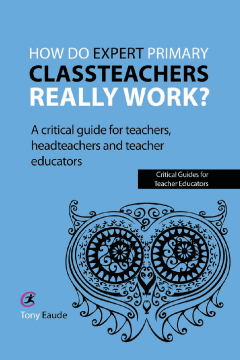
Additional Information
Book Details
Abstract
This is an essential text for anyone interested in teaching primary school children, including teacher educators, classteachers and headteachers. What constitutes outstanding or good teaching of children in the primary years is rarely discussed other than in terms of measurable outcomes in literacy and numeracy. This book presents a different view of the distinctive learning needs of 5-11 year-olds and examines the knowledge, skills and attributes required to meet these, especially as a classteacher. Informed by research, but linking this with practical examples, it examines how teachers with a high level of expertise with young children actually think, act and interact. While highlighting the features of such expertise, the challenges of developing it are not overlooked, and the text provides practical pointers on how to do this in both initial teacher education and continuing professional development.
This title is part of the successful Critical Guides for Teacher Educators series edited by Ian Menter.
"an excellent proposal on a highly relevant contemporary topic ... this book will be greatly appreciated by primary school educators. ... This is serious, principled work for which thought has been given in terms of attractive presentation to a defined audience. Good stuff."
Professor Andrew Pollard
Dr Tony Eaude was previously a headteacher of a multi-cultural primary school in Oxford. After studying for a doctorate at the Department of Education, University of Oxford, he has worked independently, mainly in research, writing and teaching both adults and children. He is passionate about the need to change current approaches to teaching young children.
How do Expert Primary Classteachers Really Work? offers an insight into the rewarding role of the Expert Primary Practitioner. It explores the challenges and asks important questions such as: ‘Can expertise be assessed in one lesson?’, ‘Does teaching expertise vary between cultures?’ and ‘Can one separate one’s beliefs about expertise from those about education?’ A very thought provoking read which explores the key areas of teacher expertise in great detail. It investigates how primary classteachers with a high level of expertise act and think. The text offers many layers of insight in regard to a primary teacher’s role and the needed expertise to be the best you can be. The text is an extremely helpful read for teachers, headteachers and teacher educators and perhaps even more advanced teacher trainees who are keen to deepen their knowledge and understanding.
Lizana Oberholzer, NASBTT
